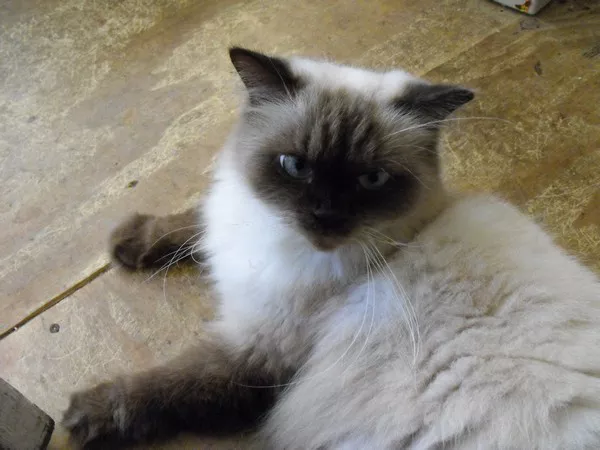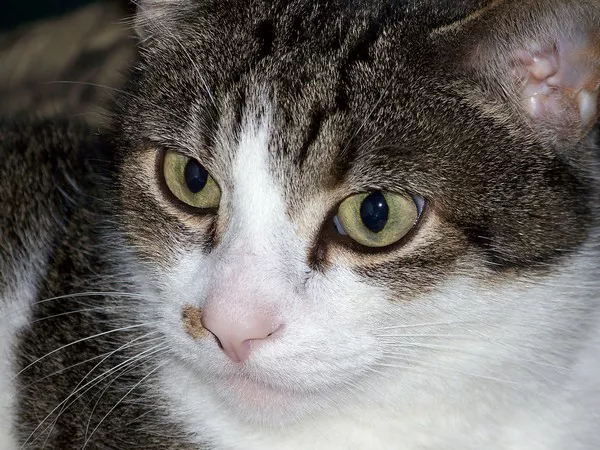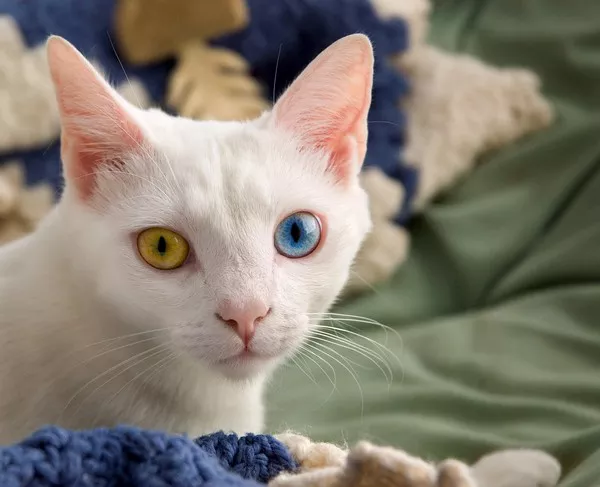Cats are obligate carnivores, which means their diet needs to be primarily composed of animal-based proteins. For cat owners, the question often arises: “How can I make healthy cat food at home?” Homemade cat food offers the opportunity to have complete control over the ingredients, ensuring your pet receives the best nutrition tailored to their specific needs. Whether you want to provide a nutritious alternative to commercial food or are trying to address a particular health concern, preparing cat food at home can be a rewarding experience.
In this article, we’ll explore the benefits of homemade cat food, the essential nutrients required for optimal cat health, and provide simple, nutritious recipes you can make at home. Additionally, we’ll discuss foods to avoid and offer tips for preparing and storing homemade meals for your feline friend.
Benefits of Homemade Cat Food
Better Control Over Ingredients: When you prepare cat food at home, you can select fresh, high-quality ingredients. This ensures that you know exactly what your pet is eating and that they are not consuming any preservatives, artificial flavorings, or by-products commonly found in commercial cat food.
Catering to Specific Dietary Needs: Some cats have food allergies or sensitivities that require a customized diet. Homemade food can be adjusted to exclude harmful ingredients or allergens and focus on what is best for your pet.
Improved Cat Health: Homemade cat food, when balanced correctly, can support better overall health by providing fresh and wholesome ingredients, which may improve coat quality, energy levels, digestion, and even weight management.
Avoiding Low-Quality Ingredients: Many commercial cat foods use low-grade ingredients, including meat by-products, fillers, and grains that cats may not digest well. By making your own food, you can avoid these.
Essential Nutrients for Cats
To create a healthy, well-rounded diet for your cat, it’s important to understand the essential nutrients they require. Cats are obligate carnivores, meaning they must consume meat to thrive. Their bodies are not designed to process plant-based proteins, so meat is crucial to their health. Here are the main nutrients your cat needs:
Proteins
Proteins form the cornerstone of a cat’s diet. Cats require high-quality animal-based proteins for muscle maintenance, tissue repair, and overall energy. The protein should come from sources like chicken, turkey, beef, lamb, or fish. Each protein source offers a different profile of amino acids, but a variety of protein types can help ensure a balanced diet.
Cats need a high level of protein compared to many other animals. In fact, their protein requirement is around 30-40% of their diet, which is significantly higher than humans or dogs.
Fats
Fats are another essential nutrient for cats. Healthy fats provide a source of concentrated energy and also aid in the absorption of fat-soluble vitamins such as A, D, E, and K. Fats also help maintain healthy skin and coat. Omega-3 and omega-6 fatty acids are particularly important for supporting your cat’s immune system and promoting brain health.
Sources of healthy fats include fish oil, chicken fat, and flaxseed oil.
Vitamins and Minerals
Vitamins are necessary for proper metabolism, immune function, and overall well-being. The most important vitamins for cats are:
Vitamin A: Important for vision, immune function, and skin health.
Vitamin D: Helps with calcium absorption for bone health.
Vitamin E: Acts as an antioxidant and supports skin and coat health.
B Vitamins: Essential for energy production and nervous system health.
In addition to vitamins, cats also need a variety of minerals to support bodily functions. Calcium and phosphorus are particularly important for bone health, and magnesium, potassium, and sodium are vital for muscle and nerve function.
Amino Acids
Amino acids are the building blocks of proteins. Cats need a variety of essential amino acids in their diet, the most crucial of which is taurine. Taurine is vital for heart health, vision, and reproduction. Cats are unable to produce taurine in their bodies, so it must be obtained through food, typically from meat-based sources.
Basic Homemade Cat Food Recipes
Creating nutritious homemade cat food is relatively simple. Here are some basic, easy-to-follow recipes that provide a good balance of essential nutrients for your cat.
Chicken and Rice Recipe
This simple recipe is easy to make and provides a good mix of protein, carbs, and fiber. It is ideal for cats with sensitive stomachs.
Ingredients:
- 1 chicken breast (boneless, skinless)
- 1 cup of brown rice (cooked)
- 1/2 cup of carrots (cooked and chopped)
- 1/4 cup of peas (cooked)
- 1 tablespoon of chicken fat or fish oil
Instructions:
- Cook the chicken breast thoroughly and shred it into small pieces.
- Cook the brown rice according to package instructions.
- Steam or cook the carrots and peas until tender.
- Mix the chicken, rice, and vegetables together in a large bowl.
- Add the chicken fat or fish oil for extra healthy fats.
- Portion the meal into serving sizes based on your cat’s weight and store any leftovers in the fridge.
Fish and Quinoa Recipe
This recipe provides a rich source of omega-3 fatty acids, protein, and taurine, which is beneficial for heart and eye health.
Ingredients:
- 1 can of wild-caught tuna in water (drained) or 1/2 cup of flaked fish
- 1/2 cup of quinoa (cooked)
- 1/4 teaspoon of taurine supplement (or according to veterinarian’s recommendation)
- 1 tablespoon of fish oil or olive oil
Instructions:
- Cook the quinoa according to package instructions.
- Flake the fish into small, cat-friendly pieces.
- Mix the quinoa, fish, and taurine supplement.
- Add the fish oil or olive oil for added healthy fats.
- Portion out the meal and refrigerate any leftovers.
Beef and Vegetable Recipe
This recipe is rich in protein and fiber, and provides a hearty, nutritious meal for your cat.
Ingredients:
- 1 cup of lean ground beef (cooked)
- 1/2 cup of sweet potato (cooked and mashed)
- 1/4 cup of green beans (cooked)
- 1 tablespoon of olive oil or flaxseed oil
Instructions:
- Cook the ground beef thoroughly and drain any excess fat.
- Steam the sweet potato and green beans, then mash the sweet potato and chop the beans into small pieces.
- Mix the ground beef, vegetables, and oil together in a bowl.
- Portion the food into servings and store leftovers in the fridge.
Ingredients to Avoid
While preparing homemade cat food, it is important to avoid certain foods that can be harmful or toxic to cats.
Toxic Foods for Cats
Onions and Garlic: These can cause anemia in cats.
Chocolate: Contains theobromine, which is toxic to cats.
Grapes and Raisins: Can cause kidney failure.
Alcohol: Even small amounts can be deadly to cats.
Caffeinated Products: Coffee, tea, and other caffeinated items can lead to tremors and seizures.
Unsuitable Ingredients
Raw Eggs: Can carry bacteria and affect biotin absorption.
Raw Meat: Can lead to bacterial infections and does not provide a balanced diet for cats.
Dairy Products: Many cats are lactose intolerant and dairy can cause digestive upset.
Preparation and Storage Tips
Cooking Instructions
Always cook the ingredients to ensure food safety and digestibility. While raw food diets can be an option, they must be carefully planned and consulted with a vet to ensure they are nutritionally complete.
Portioning and Storage
Homemade meals can be portioned into small containers and stored in the refrigerator for up to 3 days. Alternatively, you can freeze portions for longer storage. When feeding your cat, be sure to follow portion guidelines based on their weight and activity level.
Consulting a Veterinarian
Before making any changes to your cat’s diet, it’s essential to consult a veterinarian. Homemade food can provide many benefits, but it’s vital to ensure that your pet is getting the right balance of nutrients. A veterinarian can help you identify any specific dietary requirements your cat might have and offer advice on supplements (like taurine) or adjustments to the recipes.
Additionally, if you are unsure about how to balance your cat’s diet or are concerned about meeting their nutritional needs, your vet can provide guidance on the best supplements to include, ensuring that your homemade food supports optimal cat health.
Conclusion
Making healthy cat food at home is an excellent way to take control of your cat’s diet and ensure they are getting high-quality, nutritious meals. By understanding the essential nutrients, avoiding harmful ingredients, and following easy-to-make recipes, you can support your cat’s overall health. Always consult your veterinarian to ensure your homemade meals are nutritionally balanced, and your feline companion will thrive for years to come. Remember, your cat’s health is your responsibility, and providing them with a well-balanced homemade diet can make a significant difference in their long-term well-being.
Related Topics



























